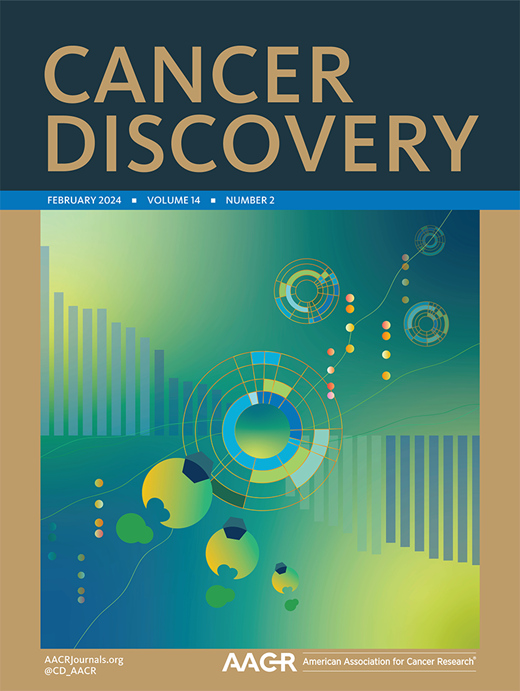Off-pore nucleoporin sPOM121 transcriptionally propels β-Catenin driven tumor progression and immune escape in prostate cancer.
IF 33.3
1区 医学
Q1 ONCOLOGY
引用次数: 0
Abstract
The roles of nucleoplasmic-residing nucleoporins (NUPs) in solid tumors, including prostate cancer, remain unknown. In this study, we reveal the clinical significance and mechanistic role of the off-pore NUP, soluble POM121 (sPOM121), as a crucial transcriptional regulator that enhances the aggressiveness of metastatic prostate cancer. Using orthogonal methodologies in human samples, sPOM121 was identified as the predominantly expressed nucleoplasmic NUP in prostate cancer. Unbiased proteomic and epigenomic studies demonstrate that sPOM121, through its C-terminus, interacts with the chromatin remodeler SMARCA5 at gene promoter sites and localizes at nuclear condensates, reprogramming gene expression. Indeed, sPOM121 regulates a distinct oncogenic gene network, including β-catenin, leading to prostate cancer progression and immune evasion. Importantly, targeting the sPOM121/β-catenin axis in patient-derived pre-clinical and syngeneic mouse models halts prostate cancer aggressiveness and enhances anti-tumor immunity. Taken together, these findings reveal previously unknown actionable reprogramming functions of off-pore NUPs in solid tumors.外孔核孔蛋白sPOM121转录促进β-Catenin驱动的前列腺癌肿瘤进展和免疫逃逸。
核质驻留核孔蛋白(NUPs)在包括前列腺癌在内的实体肿瘤中的作用尚不清楚。在这项研究中,我们揭示了孔外NUP,可溶性POM121 (sPOM121),作为一个重要的转录调节因子,增强转移性前列腺癌的侵袭性的临床意义和机制作用。在人类样本中使用正交方法,sPOM121被确定为前列腺癌中主要表达的核质NUP。无偏倚的蛋白质组学和表观基因组学研究表明,sPOM121通过其c端在基因启动子位点与染色质重塑器SMARCA5相互作用,并定位于核凝聚体,重编程基因表达。事实上,sPOM121调节一个独特的致癌基因网络,包括β-连环蛋白,导致前列腺癌的进展和免疫逃避。重要的是,在患者衍生的临床前和同基因小鼠模型中,靶向sPOM121/β-catenin轴可以阻止前列腺癌的侵袭性并增强抗肿瘤免疫。综上所述,这些发现揭示了实体肿瘤中非孔nup的可操作重编程功能。
本文章由计算机程序翻译,如有差异,请以英文原文为准。
求助全文
约1分钟内获得全文
求助全文
来源期刊

Cancer discovery
ONCOLOGY-
CiteScore
22.90
自引率
1.40%
发文量
838
审稿时长
6-12 weeks
期刊介绍:
Cancer Discovery publishes high-impact, peer-reviewed articles detailing significant advances in both research and clinical trials. Serving as a premier cancer information resource, the journal also features Review Articles, Perspectives, Commentaries, News stories, and Research Watch summaries to keep readers abreast of the latest findings in the field. Covering a wide range of topics, from laboratory research to clinical trials and epidemiologic studies, Cancer Discovery spans the entire spectrum of cancer research and medicine.
 求助内容:
求助内容: 应助结果提醒方式:
应助结果提醒方式:


